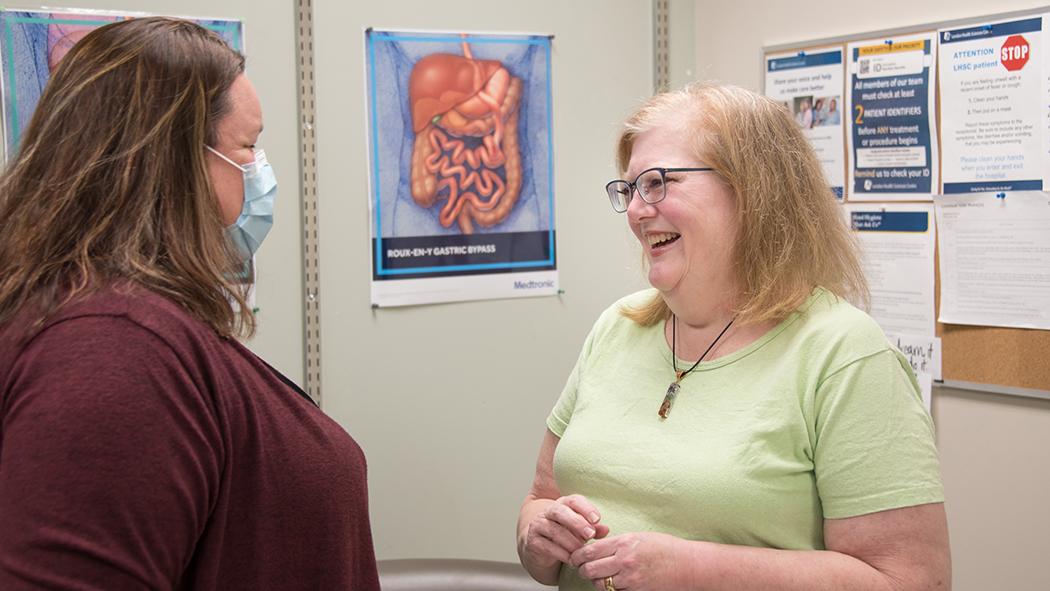
January 17, 2024
Each month about two dozen people come together to support each other through the journey faced by those who’ve had bariatric surgery to treat obesity.
They gather virtually to learn, to lean on each other through the many challenges and to celebrate the successes as part of an aftercare program at the London Bariatric Centre of Excellence at London Health Sciences Centre’s University Hospital.
“I would hate for people to be sitting out there in despair or struggling and not having someone to be there,” says Sandy Achilleos, a retired respiratory therapist, who underwent gastric bypass surgery in October 2022. “It’s quite wonderful to be able to talk, to share” with others going through the same experience.
Led by psychologist Dr. Tony Iezzi and social worker Heather McKinlay, the support group is just one of the quality improvement initiatives that helped the centre earn accreditation from the Metabolic and Bariatric Surgery Accreditation and Quality Improvement Program (MBSAQIP®), a joint program of the American College of Surgeons and the American Society for Metabolic and Bariatric Surgery.
Medical Director Dr. Christopher Schlachta notes there was a time when bariatric surgery was more dangerous than open heart surgery. But with advances in technology and the implementation of standards such as those required to earn MBSAQIP® accreditation, it is now about as risky as an appendectomy. “And that's because of compliance with these very high-quality standards,” Dr. Schlachta explains.
Only the fourth centre in Canada to achieve this accreditation, it recognizes the centre for the highest standards in patient safety and quality, and for meeting essential criteria for staffing, training, facility infrastructure and ensuring its ability to support patients with obesity.
“It's quite an intensive process,” says Katrina Mackey, manager of Ambulatory Surgical Services at University Hospital. “There were a lot of internal stakeholders who helped us get ready for this and ensure that we had everything organized and ready to go.”
LHSC is one of 11 hospitals in the province that are part of the Ontario Bariatric Network (OBN) which was established in 2009 to help make treatment for those with obesity more accessible and reduce the need to travel out of province for this life-changing surgery. The OBN is a collaborative network consisting of interdisciplinary teams of bariatric experts that provide comprehensive medical and surgical bariatric services. It sets standards that must be met by each of the member programs.
But the MBSAQIP® accreditation goes beyond those. “It's a little bit more detailed and specific to the requirements that we need to have and it's really important for our own quality program,” Mackey explains. “We are still a relatively new program that is continuing to grow, and we want to make sure that our foundation is as strong as it possibly can be.”
The program opened in January 2018 and since then more than 1000 surgeries have been completed.
For Achilleos, who has lost about 30 per cent of her initial body weight, this truly was life-changing surgery. “It has significantly changed just about every aspect of my life,” she says. “I feel better, I move better, I have more confidence, I look better. It’s the ability to do things without thinking that I am too big to do it.
“It was one of the best decisions I've ever made.”